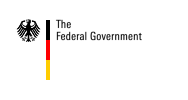The first phase: 1975 to 1980
The earliest forms of dialogue with civil society emerged at the very start of the G7 process in the mid-1970s, and these were slowly but constantly developed. At this point, the G7 was primarily interested in cultivating contacts with academic circles.
The second phase: 1981 to 1994
It was in the years 1981 to 1994 that other civil society groups, notably from the peace and environmental movements, recognised the importance of the G7. Their efforts to participate in the G7 process early came to be expressed in two different forms: lobbying and active protest.
The third phase: 1995 to 1997
Even after the East-West confrontation had come to an end, the concerns of civil society loomed increasingly large in G7 discussions, while the focus increasingly shifted to social questions within the member states and to the question of equitable relations between North and South.
The terms "civil society" and "non-governmental organisations" were first used in official summit documents in Halifax (Canada) in 1995, thus emphasizing the importance of these groups for the reform of international financial institutions and the promotion of sustainable development.
The fourth phase: 1998 to today
In the period since 1998, civil society has proved to be a more and more effective partner in dialogue. With well-established coordinating structures, civil society now comes to the presidency with concrete ideas and proposals and ensures that its positions are considered in the G8's deliberations.
Russia too, a member of the G8 since 1998, took over this culture of engagement with the concerns of civil society, as when in 2006 the Russian presidency invited civil society to a dialogue in St. Petersburg.
Interaction of G8 and civil society
There are a number of different ways in which G8 and civil society may interact.
Among the legitimate means are demonstrations and counter-events. Ever more frequently, however, there have also been violent demonstrations against the G8 summits by anti-globalization protesters.
At the Genoa summit in 2001, one of the demonstrators was sadly killed. The Heads of Government responded to this tragedy with a joint declaration.
Civil society and G8 do however also find themselves engaged in joint discussions. Discussion groups and task forces are set up. In 2005, for example, Britain's Royal Institute of International Affairs organised a stakeholder consultation project in connection with the Gleneagles summit.
Latest developments
The run-up to the St Petersburg summit of 2006 saw the launch of the Civil G8 project, initiated by 40 Russian NGOs, which brought a variety of NGOs from different countries together around one table. The Civil G8 project organised an NGO Forum of its own in March 2006 and also meetings with Sherpas to discuss topics on the G8 agenda.
Before the summit in Russia there were also discussions with various [NGOs]. These discussions were an opportunity to communicate the NGOs positions on the summit themes and to initiate dialogue with civil society.
The German Government too will seek intensive contacts with civil society during its presidency of the G8 in 2007.
